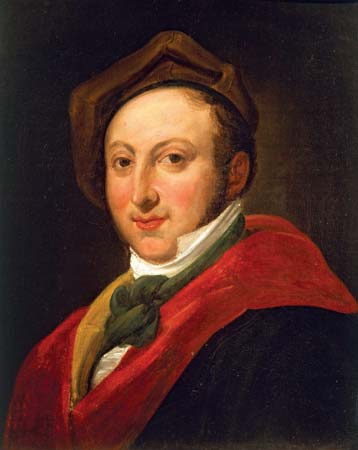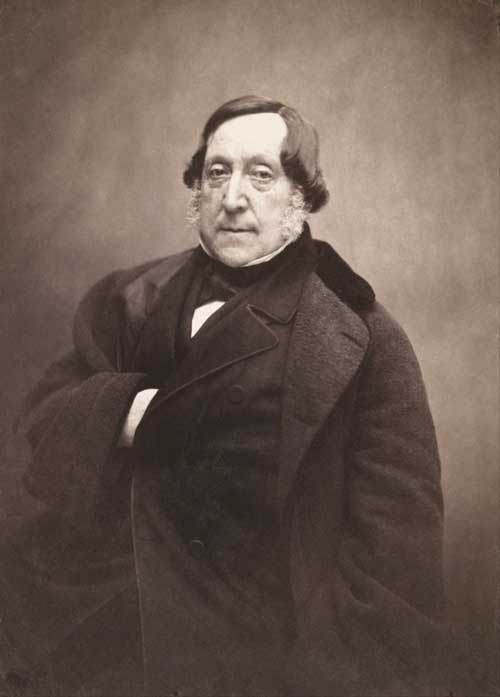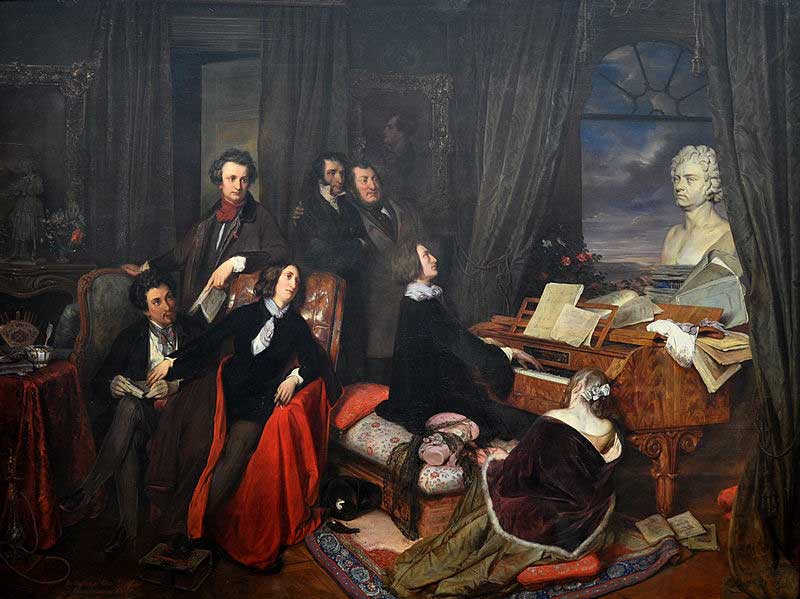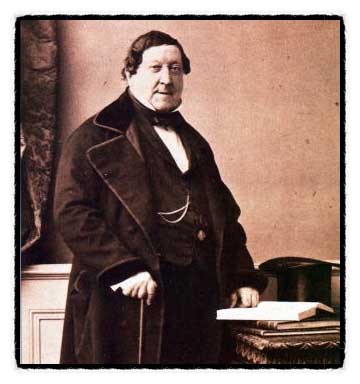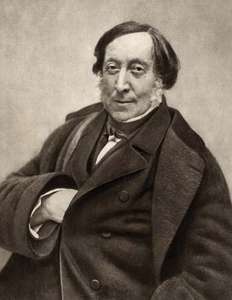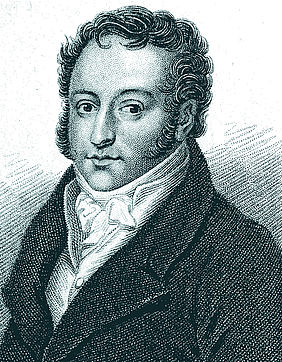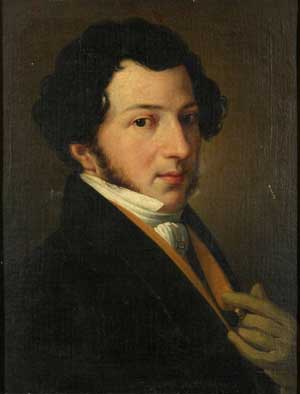Overview
Works Directory
Top Works
| Rossini: La Cenerentola | Composer | 1817 | |
| Rossini: Otello | Composer | 1816 | |
| Rossini: Il barbiere di Siviglia | Composer | 1816 | |
| Rossini: Rossini: Guillaume Tell | Composer | 1824-1829 | |
| Rossini: 6 Sonate a quattro | Composer | 1804 | |
| Rossini: La donna del lago | Composer | 1819 | |
| Rossini: Tancredi | Composer | 1813 | |
| Rossini: L'italiana in Algeri | Composer | 1813 | |
| Rossini: Semiramide | Composer | 1823 | |
| Rossini: Stabat Mater | Composer | 1831-1841 | |
| Rossini: Le comte Ory | Composer | 1828 | |
| Rossini: La cambiale di matrimonio | Composer | 1810 | |
| Rossini: La scala di seta | Composer | 1812 | |
| Rossini: Duetto buffo di due gatti | Composer | ||
| Rossini: II Mose in Egitto | Composer | 1818 | |
| Rossini: Il signor Bruschino | Composer | 1813 | |
| Rossini: Mosè in Egitto | Composer | 1822 | |
| Rossini: La gazza ladra | Composer | 1817 | |
| Rossini: Elisabetta, regina d'Inghilterra | Composer | 1815 | |
| Rossini: L'equivoco stravagante | Composer | 1811 |
Photos
Biography
Gioachino Antonio Rossini ( February 1792 – 13 November 1868) was an Italian composer who wrote 39 operas as well as sacred music, chamber music, songs, and some instrumental and piano pieces.
His best-known operas include the Italian comedies Il barbiere di Siviglia (The Barber of Seville) and La Cenerentola (Cinderella), and the French-language epics Moïse et Pharaon and Guillaume Tell (William Tell). A tendency for inspired, song-like melodies is evident throughout his scores, which led to the nickname "The Italian Mozart".
Until his retirement in 1829, Rossini had been the most popular opera composer in history. He is quoted as having joked, "Give me the laundress' bill and I will set to music even that."
Early life
Gioachino Antonio Rossini was born into a family of musicians in Pesaro, a town on the Adriatic coast of Italy which was then part of the Papal States. His father, Giuseppe, was a horn player and inspector of slaughterhouses. His mother, Anna, was a singer and a baker's daughter. Rossini's parents began his musical training early, and by the age of six he was playing the triangle in his father's musical group.
Rossini's father was sympathetic to the French Revolution and welcomed Napoleon's troops when they arrived in northern Italy. When Austria restored the old regime, Rossini's father was sent to prison in 1799, where he remained until June 1800. Rossini's mother took him to Bologna, making a living as leading singer at various theatres of the Romagna region. Her husband would ultimately join her in Bologna. During this time, Rossini was frequently left in the care of his aging grandmother, who had difficulty supervising the boy.
He remained at Bologna in the care of a pork butcher while his father played the horn in the orchestras of the theatres at which his wife sang. The boy had three years of instruction in the playing of the harpsichord from Giuseppe Prinetti, originally from Novara, who played the scale with two fingers only; Prinetti also owned a business selling beer and had a propensity to fall asleep while standing. These qualities made him a subject for ridicule in the eyes of the young Rossini.
Education
He was eventually taken from Prinetti and apprenticed to a blacksmith. In Angelo Tesei, he found a congenial music master, and learned to sight-read, play accompaniments on the piano and sing well enough to take solo parts in the church when he was ten years of age. Important products of this period are six sonate a quattro, or string sonatas, composed in three days, unusually scored for two violins, cello and double bass. The original scores, dating from 1804, when the composer was twelve, were found in the Library of Congress in Washington D.C. Often transcribed for string orchestra, these sonatas reveal the young composer's affinity for Haydn and Mozart, already showing signs of operatic tendencies, punctuated by frequent rhythmic changes and dominated by clear, songlike melodies.
In 1805, he appeared at the theatre of the Commune in Ferdinando Paer's Camilla, his only public appearance as a singer. He was also a capable horn player, treading in the footsteps of his father. Around this time, he composed individual numbers to a libretto by Vincenza Mombelli called Demetrio e Polibio, which was handed to the boy in pieces. Though it was Rossini's first opera, written when he was thirteen or fourteen, the work was not staged until the composer was twenty years old, premiering as his sixth official opera.
In 1806, Rossini became a cello student under Cavedagni at the Conservatorio di Bologna. The following year he was admitted to the counterpoint class of Padre Stanislao Mattei (1750–1825). He learned to play the cello with ease, but the pedantic severity of Mattei's views on counterpoint served only to drive the young composer's views toward a freer school of composition. His insight into orchestral resources is generally ascribed not to the strict compositional rules that he learned from Mattei, but to knowledge gained independently while scoring the quartets and symphonies of Haydn and Mozart. At Bologna, he was known as "il Tedeschino" ("the Little German") on account of his devotion to Mozart.

Index: 9.0
Type: Person Male
Period: 1792.2.29 - 1868.11.13
Age: aged 76
Genre :Opera
Area :Italy
Occupation :Composer
Periods :Romantic Music
